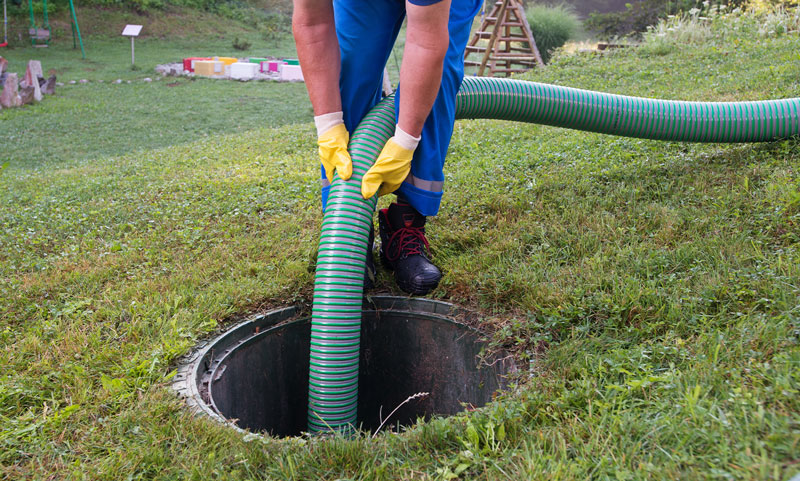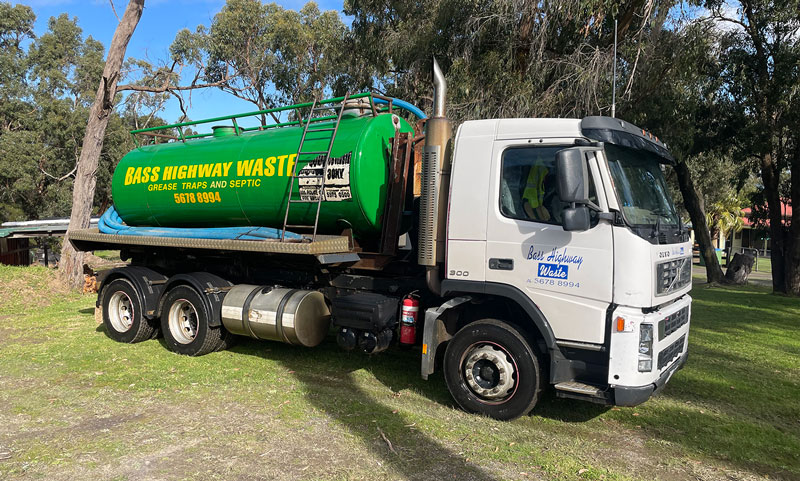Septic Desludging
Desludging is the process of removing both the scum and the sludge layers from your primary septic tank.What is desludging?
Over the years, your wastewater treatment system will gradually build a layer of solids or ‘sludge’, which settles at the bottom of the primary septic tank. The primary tank is where the effluent is first sent to, and where all the solids can settle to the bottom, allowing the rest to pass through the other chambers for further cleaning. These settled solids form what we in the business call “sludge”.
Separate from sludge is the “scum”, which usually consists of the fats and oils transported along with your wastewater. They rise to the top to form another layer.
Desludging is the process of removing both the scum and the sludge layers from your primary septic tank, usually with a vacuum truck that comes along to essentially pump them out through the top access lid. The best way to ascertain if your septic tank requires desludging is to measure the ‘sludge’ and ‘scum’ layer with a measuring tube. That’s where the professionals come in. This is something your service technician will do at each service. And if your tank is buried, your maintenance provider can also help to locate the system and install access lids at ground level for future maintenance.
Why is desludging so important?
Desludging is one of the most important things you can do to protect and prolong the life of all types of septic systems. If the solids accumulate for too long, or if the scum backs up into crucial parts of the system, then your tank will not work as efficiently. This places your system – and eventually you – under significant strain in the long run.


WITHOUT REGULAR DESLUDGING:
• Your sewer drain could become blocked up by solids, which may cause raw sewage to back-up into the house.
• The area in which effluent can be stored reduces according to how much sludge and scum are in the tanks. If that area becomes too small to handle the amount of wastewater your home is pumping into the tank, raw sewage may discharge from your Overflow Relief Gully (ORG), potentially contaminating your entire backyard.
• Your system may build high levels of suspended solids which can block filters, damage pumps, block dispersal fields (irrigation) and clog sand filters.
• The filters work harder to remove a high number of solids from the effluent. The longer your tank goes unpumped, the more the final quality of the wastewater is compromised.
How often do I need to desludge my system?
The frequency of desludging is typically calculated on the number of people living in the house and the capacity of your system.
It is important to note that you will need to pump out your tank more often if the following things enter the system:
• Harsh cleaning products such as bleach, chlorine, and disinfectants damage the bacteria working to process the wastewater.
• Strong medication such as antibiotics or blood pressure tablets, which can compromise the bacterial balance.
• Sanitary items such as pads and tampons, as these will block the pipes in the system.
In addition, remember to keep a record of every time you pump out your system, as the local council might request this information from you.
Reliable, friendly service with competitive rates.
Whether you need a skip bin for a residential clean-up, a demolition site, a landscaping project, or commercial use like factories and offices, we have got you covered. We also offer septic de-sludging. Servicing Phillip Island, Bass Coast and parts of both South Gippsland & Cardinia Shires.
Bass Highway Waste | Skip Bin Hire | Rubbish Removal | Skip Bins | Waste Removal Services | Skip Bins Phillip Island | Skip Bins Bass Coast | Skip Bins South Gippsland | Skip Bin Hire Phillip Island | Skip Bins For Hire | Best Prices Skip Bins | Cheap Skip Bins | Skip Bins Short Term Hire | Skip Bins Long Term Hire | Skip Bin Cost | Book A Skip Bin | Local Skip Bin Company | Local Rubbish Removers | Waste Management | Waste Removers | Rubbish Collection
